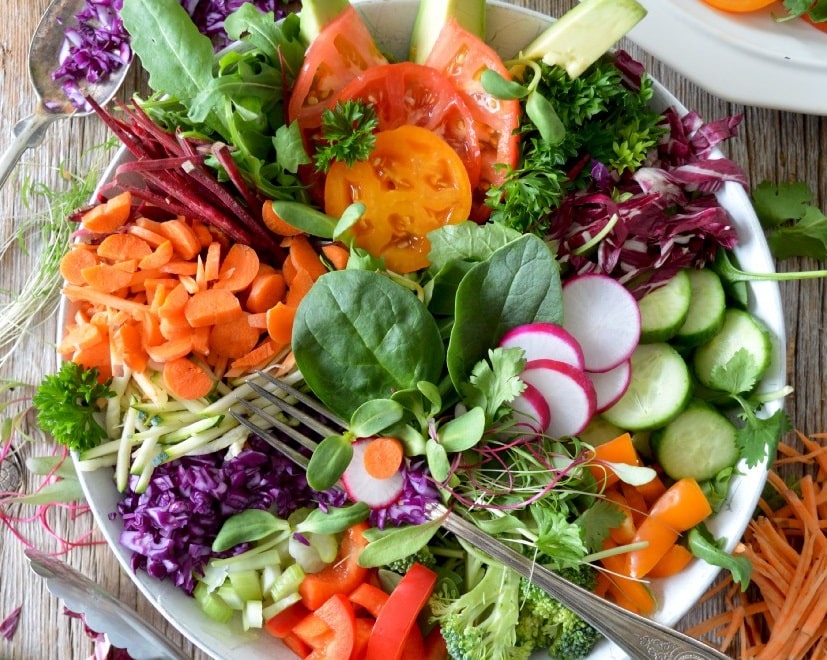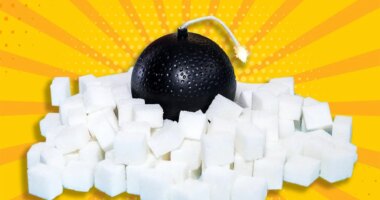
I have been heavily involved in the health and fitness industry for many years. I started playing basketball in first grade, joined my school’s track team in seventh grade, and started running cross country in eighth grade.
My entire high school career, I was a tri-sport athlete. I decided to continue running cross country and track in college, which meant I ran competitively, year-round, for eight years straight.
To be honest, the hardest part of high-level training wasn’t the training itself. Instead, it was the recovery process. In order to stay healthy, fit, and excel in my sport, I had to make sure I stretched, rolled, getting enough sleep, and of course, ate well.
It wasn’t just about eating enough. It was about eating enough of the right nutrients. Ultimately, adjusting my diet helped me gain a lot of fitness and strength.
These Crucial Plants
When it comes to the world’s fittest people, like Olympic athletes, there’s a huge emphasis on fruits and vegetables, and for good reason.
Fruits and vegetables are full of all kinds of vitamins and minerals. The more variety you eat, the more likely you are to meet your daily needs for all essential vitamins.
Some key fruits that tennis champion Osaka consumes are included in her typical green smoothie. Your smoothie is full of:
“kale, spinach, an electrolyte solution called Bodyarmor Lyte in coconut flavor, and kiwi, she told Pure Wow in April.”
This is not surprising since kale contains vitamin C, vitamin A, potassium, calcium, magnesium and the list goes on.
This Secret Superfood Grain
There is a very common and unfortunate idea that you can’t be fit and eat carbohydrates at the same time. I don’t know why or how this fitness myth started, but we can’t seem to get rid of it.
Carbohydrates are an essential macronutrient for the body and an important source of fuel for resistance training. The key is not to cut out carbs altogether, but to focus on whole-grain sources.
READ RELATED: Is Activia Yogurt Healthy? Not As Much As You Think
One such source, which contains many plant-based nutrients, is quinoa. Quinoa is amazing because it is:
“Higher in protein than any other grain and contains a healthy dose of heart-healthy unsaturated fats. “Quinoa is also a great source of fiber and B vitamins,” says Christopher Mohr, Ph.D., R.D. professor of nutrition at the University of Louisville.
Not all carbohydrates consist only of refined sugars and white flour. Instead of cutting out carbs entirely, focus on eating the whole grain sources that contain the most nutrients.
This Unique Root Vegetable
If you’re interested in endurance racing, specifically marathon racing, you’ve probably heard some Olympic marathon runners mention beetroot juice as a performance tool.
In fact, there is some science to back up the powerful benefits of this tuber. In fact, several studies have shown promise:
“Runners who had a shot of beetroot juice before the race reduced their 5K race times by 1.5%, a study published in the Journal of Applied Physiology found.”
“A meta-analysis of 23 beet juice studies from 2017 found that beet juice can improve cardiorespiratory endurance in athletes by increasing efficiency, which improves performance and increases time to exhaustion.”
Beetroot is a vegetable that I have come to love not only for its potential performance benefits but also for the sheer number of nutrients it contains. They are definitely a vegetable that you should consider incorporating into your diet.
Final Thoughts
I shaved almost a full two minutes off of my high school 5k personal best in college. A lot of this had to do with increasing my training load, but my body couldn’t handle it without proper recovery and nutrition.
Whether your goal is to gain strength in the gym, run a mile faster, or just feel better every day, adjusting your nutrition will play a big role.
Feed your body plenty of healthy ingredients like the ones on the list and you’ll be amazed at how great you feel and perform.
Source: crfatsides







